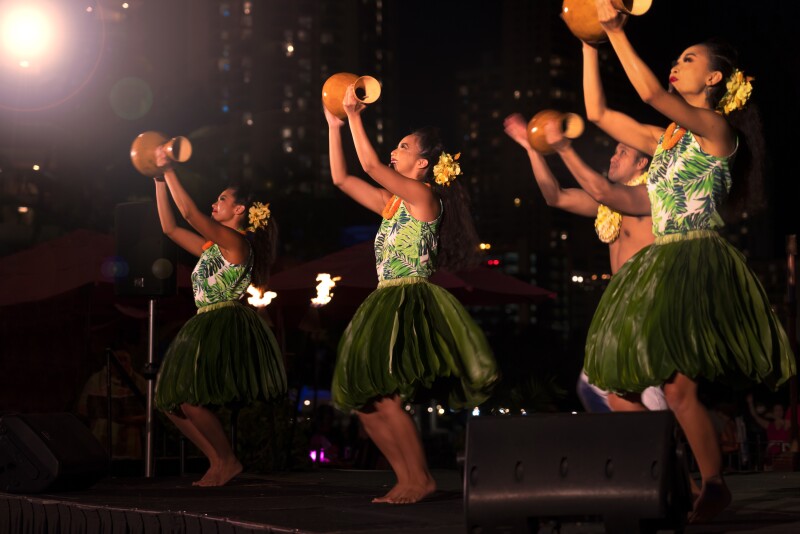I’m back on the mainland after a couple of weeks on the Hawaiian island of O‘ahu, where my mother’s family is from. I’m still dreaming of turquoise waves, white sand, and sunsets over the Pacific Ocean.
I’ve been thinking a lot about tourism in the Hawaiian islands lately. I spent much of April as a digital nomad in Honolulu: I worked on several stories and spent time with my relatives, many of whom have worked in the tourism industry in some way. (My mom worked at the Kahala Hotel & Resort, and my parents met while working together at the Ilikai Hotel.)
While there, I watched a fascinating debate on PBS focusing on the future of the imperiled Hawai‘i Tourism Authority, or HTA: Two bills in the Hawai‘i State Legislature are proposing to dissolve the organization and replace it with a state-run tourism division. The debate included featured John De Fries, the president and CEO of the HTA, and Rep. Natalia Hussey-Burdick, the vice chair of the state’s House Tourism Committee. I empathize deeply with the HTA, which has been so supportive of my reporting here. At this point, it’s hard to say how the issue will net out, but the fact that so many residents are engaged in this debate is a reminder of how essential tourism will continue to be in the islands.
I spent a lot of time in Waikīkī, and while many people write it off as the antithesis of authentic, it’s a very special place with a long, complex history. Hawaiian royals used to congregate here to harness the healing powers of the fresh spring water that runs into the ocean. It’s the birthplace of modern surfing: Duke Kahanamoku rode the waves like those you see while staying at such iconic hotels as the Halekulani or the Moana Surfrider. But in a place like Waikīkī, where overtourism and shiny luxury storefronts can blind a visitor to the uniqueness of a place, guidance from such experts as travel advisors is especially crucial.

Tihati Productions presents a luau at the Royal Hawaiian twice a week.
Courtesy of the Royal Hawaiian
The lūʻau at the Royal Hawaiian
There are many incredible ways to connect with Hawaiian culture in Waikīkī. I visited the Royal Hawaiian, the grande dame also known as the Pink Palace, and sat with Misty Tufono of Tihati Productions, the longest running entertainment company in Hawai‘i. Misty is the daughter of Tihati’s founders, who have Native Hawaiian roots, and she now runs the company with Afatia Thompson, her brother. We talked at length about how Tihati remains true to its heritage by informing guests about Hawaiian history and the difference between Polynesian cultures (not every lūʻau takes the time to do this), while also delivering an entertaining evening with local performing legends twice a week on the scenic grounds of the Royal Hawaiian. You’ll hear more from her in June on AFAR’s Unpacked podcast.
Duke’s Waikiki
I also spent time with Dylan Ching, the vice president of operations for TS Restaurants, who runs Duke’s Waikiki, which doubles as a museum to Duke Kahanamoku and has a popular brunch that I tucked into with my family one morning (the Portuguese sausage is to die for). While many of his guests are visitors to the islands, Ching, who also has Native Hawaiian roots, pays it forward: He shared the restaurant’s efforts to honor locals who are perpetuating Hawaiian culture.
Surfers in residence at Outrigger Waikiki
I also met with Aunty Luana Maitland, the director of cultural activities for the Outrigger hotel group’s Waikīkī properties. She oversees the programming at the Outrigger Reef‘s handsome new A’o Cultural Center, which is decorated with artifacts from Honolulu’s Bishop Museum and offers everything from Native Hawaiian language classes to hula lessons. She introduced me to Bonga Perkins, a renowned professional longboard surfer who happened to be at the Outrigger Waikiki’s Beach Resort as part of the hotel’s surfer in residence program. He told me how he grew up poor in Honolulu but found an extended family in the legendary beach boys who surfed Waikīkī. They supported his surfing obsession from a young age but also fed him tuna fish sandwiches and made sure he attended school.
Moniz Surf School
Near the end of my trip, I took a surf lesson at the Waikīkī-based Moniz Surf School, owned by a local family whose name is legendary in the surfing world (Seth Moniz is currently representing Hawai‘i on a world tour). My instructor, Kevin Okimoto, has been surfing here for close to three decades. He told me stories about bygone days while we bobbed on our boards together on cerulean waters. And gave me a much-needed shove when it was time for me to catch a wave.
These incredible people show up at Waikīkī every day as part of their kuleana, or responsibility, to help well-intentioned visitors unlock the magic of the real Hawai‘i.








